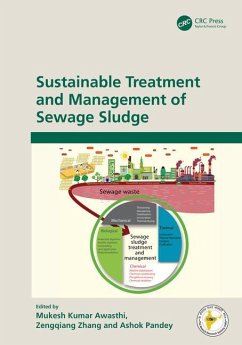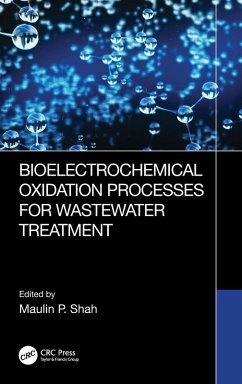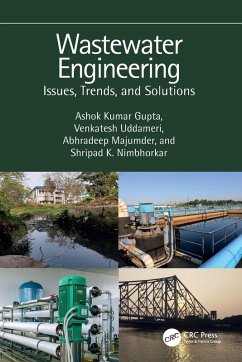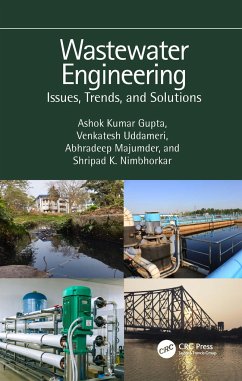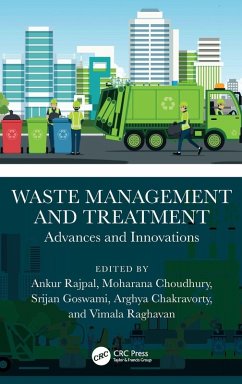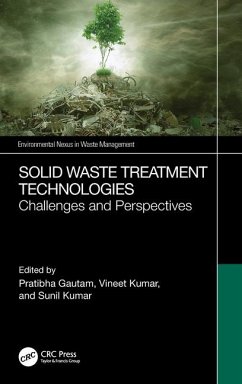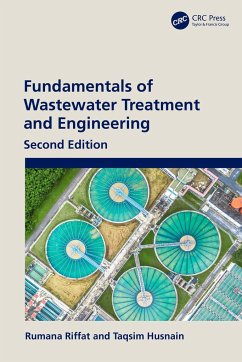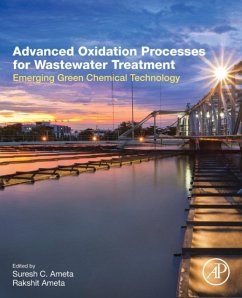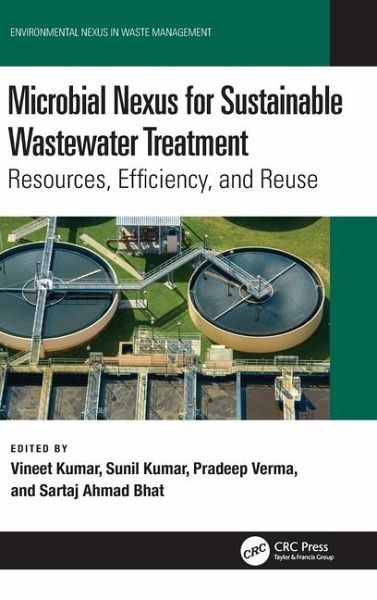
Microbial Nexus for Sustainable Wastewater Treatment
Resources, Efficiency, and Reuse
Herausgegeben: Kumar, Vineet; Kumar, Sunil; Verma, Pradeep; Bhat, Sartaj Ahmad
Versandkostenfrei!
Versandfertig in 6-10 Tagen
165,99 €
inkl. MwSt.
Weitere Ausgaben:

PAYBACK Punkte
83 °P sammeln!
Microbial ecology is pivotal in wastewater treatment, where microorganisms play a vital role in breaking down organic matter and ultimately reduce the levels of contaminants in treated water, making it safe for reuse in agriculture, industry, and other applications. The book, Microbial Nexus for Sustainable Wastewater Treatment: Resources, Efficiency, and Reuse, ventures into the dynamic world of microbial ecosystems, unveiling their pivotal role in reshaping wastewater treatment technologies. This book addresses novel microbial techniques related to sustainable, efficient technologies of wast...
Microbial ecology is pivotal in wastewater treatment, where microorganisms play a vital role in breaking down organic matter and ultimately reduce the levels of contaminants in treated water, making it safe for reuse in agriculture, industry, and other applications. The book, Microbial Nexus for Sustainable Wastewater Treatment: Resources, Efficiency, and Reuse, ventures into the dynamic world of microbial ecosystems, unveiling their pivotal role in reshaping wastewater treatment technologies. This book addresses novel microbial techniques related to sustainable, efficient technologies of wastewater treatment and wastewater reuse as well as obtaining high-quality effluents from treatment plants.
Features:
Unveils the potential of high-throughput microbial biotechnology for transforming wastewater management.Describes the microbial nexus involved in the biodegradation of pharmaceutical micropollutants.Highlights the valuable materials recoverable from wastewater, associated challenges, and diverse opportunities arising from effective wastewater management.Covers advanced bioremediation technologies designed to handle emerging pollutants. Demonstrates the integration of nanotechnology with bioaugmentation, exploring potential advantages and disadvantages that shape the future of wastewater treatment.Provides insights into adopting a circular economy model aligning with sustainable development goals for resource extraction.
This book is tailored for graduate students and researchers in wastewater treatment, waste valorization, environmental engineering, and hazardous waste management.
Features:
Unveils the potential of high-throughput microbial biotechnology for transforming wastewater management.Describes the microbial nexus involved in the biodegradation of pharmaceutical micropollutants.Highlights the valuable materials recoverable from wastewater, associated challenges, and diverse opportunities arising from effective wastewater management.Covers advanced bioremediation technologies designed to handle emerging pollutants. Demonstrates the integration of nanotechnology with bioaugmentation, exploring potential advantages and disadvantages that shape the future of wastewater treatment.Provides insights into adopting a circular economy model aligning with sustainable development goals for resource extraction.
This book is tailored for graduate students and researchers in wastewater treatment, waste valorization, environmental engineering, and hazardous waste management.





